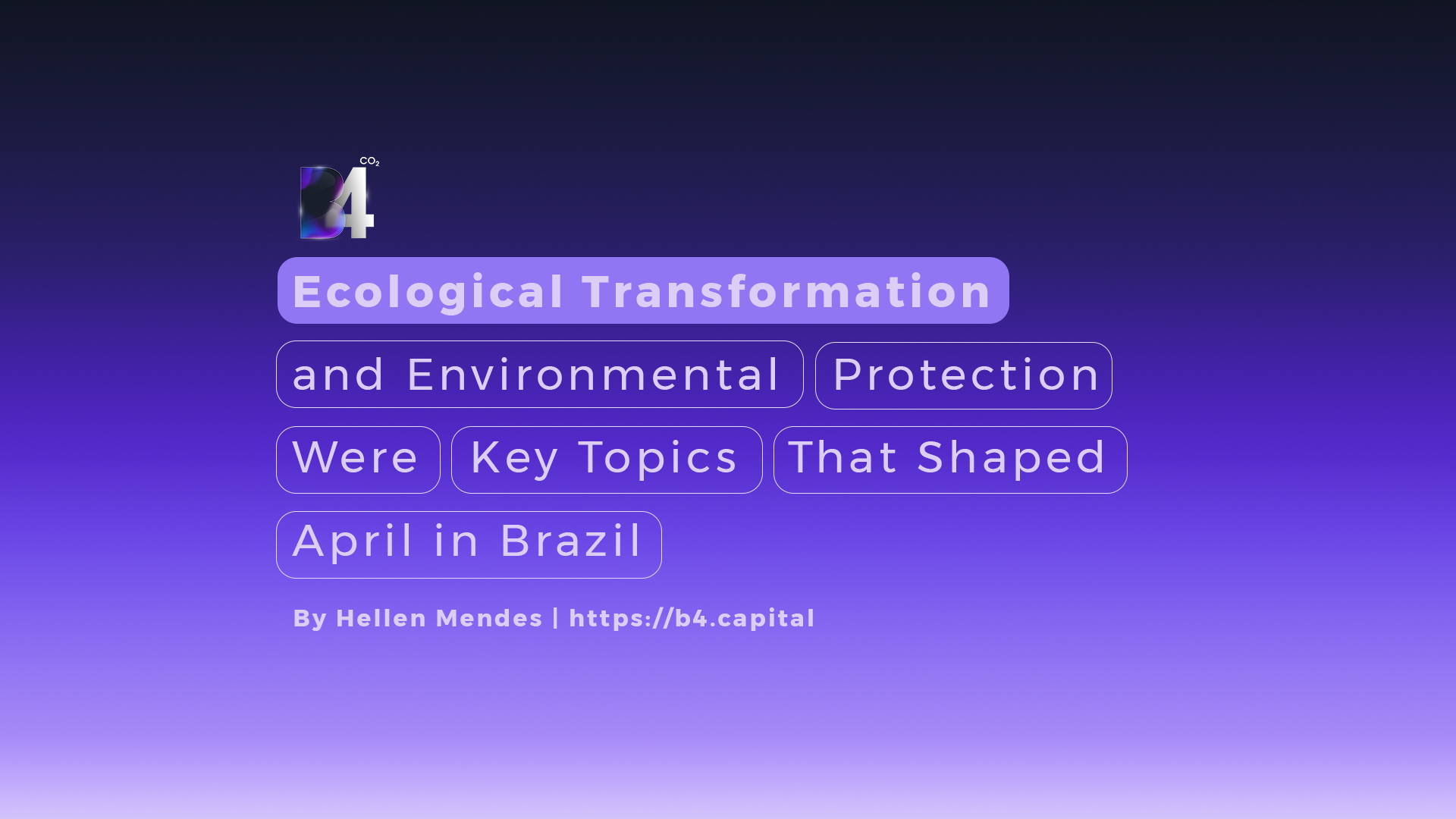April opened and closed on a “green” note, highlighting actions aimed at fulfilling the Pact for Ecological Transformation, involving the three branches of government: Executive, Legislative, and Judiciary. This pact focuses on environmental and climate agendas, resilience to climate events, the rights of future generations, and social justice. It proposes a new development model for a low-carbon economy.
In the Executive branch, Decree No. 12,438 was approved, regulating the import of solid waste, along with Law No. 15,122, which establishes criteria for suspending commercial concessions in response to certain measures.
The mentioned decree, for example, states in Article 1 that the import of any type of waste, hazardous solid waste, and waste that could harm the environment or public health is prohibited.
Regarding ongoing monitoring and negotiations related to Brazilian exports, Law No. 15,122/2025, approved on April 15, authorizes the Executive to amend or suspend countermeasures against countries that impose restrictive measures on exports.
Additionally, the Executive committed to expanding financing and reducing credit costs for sustainable projects, reinforcing its adherence to the Pact for Ecological Transformation.
Green Agenda in the Legislature
On April 22, during the Environment Commission of the Federal Senate, concerns were raised about nations falling short in their climate commitments, with the window to prevent irreversible climate change rapidly closing. Brazil’s role in sustainable energy production was extensively discussed in Congress.
Water security, especially in light of climate change, was also debated, aligning with World Water Day. Furthermore, the National Congress plans to establish three joint committees to review provisional measures (MPs).
Earth Day was commemorated on April 24 with a solemn session in the Chamber of Deputies, focusing on the urgency to curb global warming and deforestation. A project was introduced to encourage tree planting in municipalities.
Guidelines were approved for drafting climate change adaptation plans, alongside proposals for a National Soil Conservation Policy and an Amazon wildfire prevention campaign.
Education Commission of the Chamber of Deputies Approves Project Allocating Resources for Environmental and Socio-Environmental Sustainability Education in Schools
Bill (PL) 59/2022, which establishes the Direct Money to Schools Program for Sustainability Promotion, was approved on April 24 and awaits plenary approval in the Chamber of Deputies. To become law, it must pass both legislative houses.
Funds will be disbursed following the operational and regulatory framework of the existing Direct Money to Schools Program.
The project is still under discussion and will undergo conclusive analysis by the Finance and Taxation and the Constitution, Justice, and Citizenship Committees (CCJ).
Source: https://www.camara.leg.br/proposicoesWeb/fichadetramitacao?idProposicao=2313848
Closing April on a High Note, the Environment Commission Approved the Use of Green Technologies in Master Plans
On April 29, a substitute for Bill 6046 (2019) was approved, outlining environmental impact reduction guidelines and prioritizing green technologies in municipal master plans. The proposal promotes sustainable urban development while respecting municipal autonomy to adapt measures locally.
The original project mandated the installation of green roofs and rainwater reservoirs based on building height and impermeable surface area. The current version adopts a more flexible approach, focusing on the concept of “green technologies” without specific obligations.
Master plans, which guide city growth and urban space usage, must now include land use regulations to mitigate environmental impacts, such as those caused by vertical construction.
The proposal also encourages green technologies in land development and urban buildings and authorizes local incentives for adopting such technologies, like green roofs and rainwater harvesting systems.
In the Judiciary
Permanent Environmental Protection: Supreme Court Rules That Environmental Damage Claims Are Not Subject to Statute of Limitations
On April 4, the Supreme Federal Court (STF) ruled on Topic 1,194, establishing that environmental damage claims are imprescriptible, even if converted into monetary compensation. This precedent, set in Extraordinary Appeal with Agravo 1.352.872, will guide all courts nationwide.
The decision affects companies and the insurance market by maintaining perpetual liability for environmental damages, necessitating contract revisions.
Practically, business contracts must now include stringent environmental responsibility clauses, especially in transactions involving assets in environmentally sensitive areas. The insurance industry will also face indefinite liability requirements.
This ruling emphasizes perpetual environmental accountability, requiring contract updates, insurance policy adjustments, and the adoption of transparent, sustainable compliance practices.
B4’s Ongoing Commitment to Compliance Practices
B4 has always conducted its operations with a strong sustainability commitment. As of April 2, 2025, in line with legal and international requirements, all service providers for the Climate Action Exchange must submit a Carbon Inventory of their operations.
This requirement reinforces B4’s policy of adhering to international auditing and compliance standards, ensuring that its operations and those of its partners meet the highest levels of transparency and environmental responsibility.








